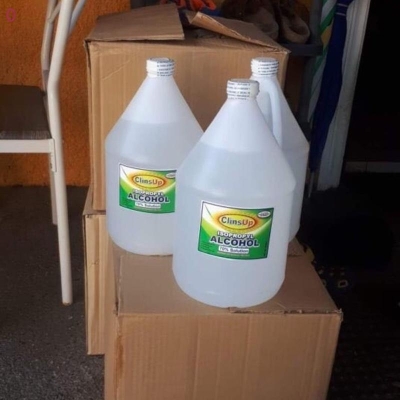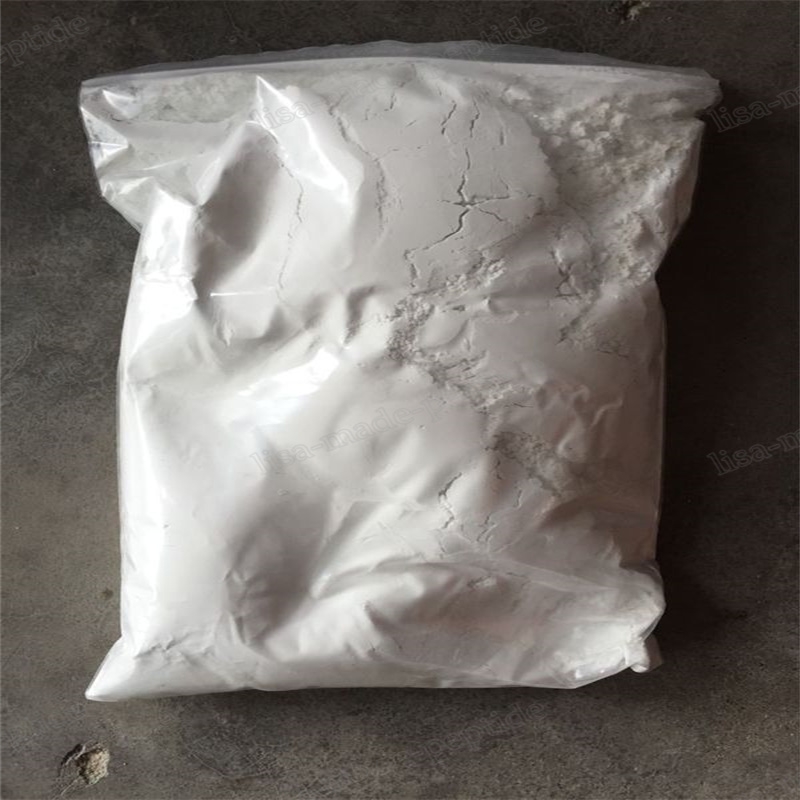-
Categories
-
Pharmaceutical Intermediates
-
Active Pharmaceutical Ingredients
-
Food Additives
- Industrial Coatings
- Agrochemicals
- Dyes and Pigments
- Surfactant
- Flavors and Fragrances
- Chemical Reagents
- Catalyst and Auxiliary
- Natural Products
- Inorganic Chemistry
-
Organic Chemistry
-
Biochemical Engineering
- Analytical Chemistry
-
Cosmetic Ingredient
- Water Treatment Chemical
-
Pharmaceutical Intermediates
Promotion
ECHEMI Mall
Wholesale
Weekly Price
Exhibition
News
-
Trade Service
【Chemical Machinery and Equipment Network Industry News】Cold, soy sauce additives related topics suddenly connected to the hot search, now it has directly become the "zero addition" and addition of the century of debate, the topic of heat remains high
.
In fact, the controversy about food additives is not a day or two, in the current diversification of consumer demand, there are no additive products occupy a place in the market, experts also personally interpreted, now food additives have strict regulations, so consumers do not have to "demonize" additives, in order to cause unnecessary panic
.
.
In fact, the controversy about food additives is not a day or two, in the current diversification of consumer demand, there are no additive products occupy a place in the market, experts also personally interpreted, now food additives have strict regulations, so consumers do not have to "demonize" additives, in order to cause unnecessary panic
.
Food additives, under the premise of reasonable and compliant use, can be used to prevent food spoilage, maintain or enhance the nutrition of food, improve or enrich the color, aroma, taste, etc
.
of food.
A professor at the School of Food and Health of Beijing Technology and Business University once said that if preservatives are not added to some foods, it is easy to cause food deterioration and cause potential safety hazards
.
.
of food.
A professor at the School of Food and Health of Beijing Technology and Business University once said that if preservatives are not added to some foods, it is easy to cause food deterioration and cause potential safety hazards
.
Up to now, China has thousands of food additives, divided into 23 categories, subject to the "Food Safety Law", "Food Safety Law Implementation Regulations" and other laws and regulations to be bound and supervised, a few days ago "Interim Measures for the Supervision and Administration of Food-related Product Quality and Safety" has also landed, the "Food Labeling Supervision and Administration Measures" in 2020 published the draft for comments, the "Green Food Labeling Management Measures" since its promulgation in 2012 has been revised twice, etc.
, all indicate that China has an increasingly perfect food safety assurance system
。
, all indicate that China has an increasingly perfect food safety assurance system
。
However, there is a saying that the demand for food additives has also directly spawned the food additive processing and manufacturing industry, which is equivalent to generating a "big household"
of energy consumption in the industrial chain.
of energy consumption in the industrial chain.
Throughout the whole process of food additive production, the production process is complex, the process is long, the energy consumption is high, and the pollutant emission is complex
.
For example, the wastewater of flavors and fragrances, COD concentration can often exceed 10,000, the organic content is complex (including heterocyclic aromatic hydrocarbons, aldehydes, phenols, organic acids, etc.
), the content of inorganic salts is also very high, and the biochemistry is often low, which is a typical type of difficult organic wastewater
.
.
For example, the wastewater of flavors and fragrances, COD concentration can often exceed 10,000, the organic content is complex (including heterocyclic aromatic hydrocarbons, aldehydes, phenols, organic acids, etc.
), the content of inorganic salts is also very high, and the biochemistry is often low, which is a typical type of difficult organic wastewater
.
And, from the information learned by several listed companies in the food additive industry, it may be more intuitive
.
For example, Jinhe Industry is a key pollutant, and the recorded pollutants include sulfur dioxide, nitrogen oxides, COD, ammonia nitrogen and so on; Starlake Technology, recorded soot, SO2, NOx, CODcr, ammonia nitrogen and so on; Shengda Biotechnology, the main types of wastewater produced in the production process include folic acid wastewater, biotin wastewater, miconazole nitrate wastewater, miconazole nitrate wastewater, lactococcin wastewater, natamycin wastewater and ε-polylysine hydrochloride wastewater and prion candida protein wastewater and so on
.
.
For example, Jinhe Industry is a key pollutant, and the recorded pollutants include sulfur dioxide, nitrogen oxides, COD, ammonia nitrogen and so on; Starlake Technology, recorded soot, SO2, NOx, CODcr, ammonia nitrogen and so on; Shengda Biotechnology, the main types of wastewater produced in the production process include folic acid wastewater, biotin wastewater, miconazole nitrate wastewater, miconazole nitrate wastewater, lactococcin wastewater, natamycin wastewater and ε-polylysine hydrochloride wastewater and prion candida protein wastewater and so on
.
Of course, in terms of pollution control, food additive industry enterprises are still very concerned
.
Jinhe Industry said that it has established a complete set of environmental protection and governance systems, and vigorously developed circular economy, improved the comprehensive utilization rate of resources, continued to optimize production processes, fully implemented ultra-low emissions and energy-saving transformation of coal-fired power plants, entrusted third-party monitoring every month, and reported the results
.
Xinghu Technology is a clean production enterprise in Guangdong Province, with a complete online monitoring system for wastewater and waste gas, which is networked with environmental protection departments to accept supervision, and at the same time formulates emergency plans for environmental emergencies as required, conducts self-monitoring and irregularly entrusts third-party monitoring
.
.
Jinhe Industry said that it has established a complete set of environmental protection and governance systems, and vigorously developed circular economy, improved the comprehensive utilization rate of resources, continued to optimize production processes, fully implemented ultra-low emissions and energy-saving transformation of coal-fired power plants, entrusted third-party monitoring every month, and reported the results
.
Xinghu Technology is a clean production enterprise in Guangdong Province, with a complete online monitoring system for wastewater and waste gas, which is networked with environmental protection departments to accept supervision, and at the same time formulates emergency plans for environmental emergencies as required, conducts self-monitoring and irregularly entrusts third-party monitoring
.
At the same time, all three companies disclose environmental and social responsibility in detail in their performance reports, and the public data is subject to the supervision
of the whole society.
of the whole society.
(The above screenshot, taking Shengda Bio as an example)
With the increase of China's environmental protection efforts in recent years and the improvement of environmental supervision, the food additive industry is facing the two-way pressure of food safety supervision and environmental supervision, and there is no doubt that it must transform to green, intelligent, high-quality and sustainable directions.
We oppose unnecessary and excessive addition, and also urge cleaner production, the two safety bottom lines are unbreakable, and the legal system and social supervision are the voices of
progress.
We oppose unnecessary and excessive addition, and also urge cleaner production, the two safety bottom lines are unbreakable, and the legal system and social supervision are the voices of
progress.
Original: If "zero addition", there will probably be fewer energy consumption and emitters However.
.
.
.
.







